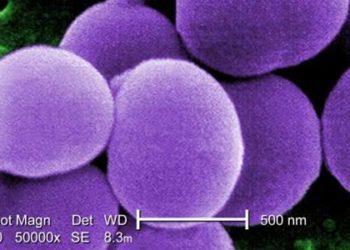Deliberate practice in virtual reality simulator improves surgical resident performance
Image: PD
1. Novice surgical residents who used deliberate practice in virtual reality simulation had significantly higher technical performance scores.
2. Residents randomized to deliberate practice received more detailed feedback from the supervising surgeon, and practiced specific tasks in the surgical simulator.
Evidence Rating Level: 1 (Excellent)
Study Rundown: The virtual reality (VR) surgical skills laboratory is an emerging resource for residents to hone their technical skills in a low risk environment. Deliberate practice, a technique thought to foster expertise in a skill, involves giving a task with a well-defined goal, motivated learners, detailed feedback, and opportunities for repetition and refinement. This study demonstrated that deliberate practice using the VR simulator improves technical performance in novice surgical residents. Technical performance, the primary endpoint, was scored by a supervising surgeon’s evaluation. Limitations of this study include its small sample size, with only 8 residents in each arm of the study. Moreover, resident performance was evaluated by different surgeons and the time period between the baseline and post-intervention evaluations varied between residents, each of which could introduce inconsistency and/or bias. Despite these limitations, this study provides an early indication of the utility of VR simulators in surgical training.
Click to read the study in the Annals of Surgery
Relevant Reading: Surgical simulation: a systematic review
In-Depth [randomized controlled trial]: This randomized single blinded study included a total of 16 PGY-1 and PGY-2 surgical residents who had performed less than 10 laparoscopic cholecystectomies as the primary surgeon. All residents performed an initial laparoscopic cholecystectomy and were scored by a supervising surgeon on a modified Objective Structured Assessment of Technical Skills (OSATS) evaluation. Residents were then randomized to either the control group, which received conventional feedback, or the intervention group, which received individualized feedback and deliberate practice in the VR simulator. All study participants finally performed another laparoscopic cholecystectomy under supervision and were evaluated and scored in the same fashion.
The intervention group practiced and passed component tasks on the VR simulator, including “instrument navigation”, “cutting”, and “lifting and grasping”. Prior to the intervention, both the control group and interventional group had similar technical scores upon evaluation of their performance during the initial laparoscopic cholecystectomy (median: 14.5 vs 13.5, p=0.49). After the intervention, residents in the deliberate practice group had greater technical performance scores than residents in the control group (median: 17.0 vs 12.5, p=0.03).
By James Jiang and Chaz Carrier
More from this author: Laparoscopic hernia repair linked with lower rate of surgical infection, Study suggests general surgery residency graduates unprepared for fellowship, NEXUS Chest decision criteria sensitive for thoracic injury, Mortality after trauma increasingly due to preexisting conditions, Physical examination sufficient to evaluate abdominal stab wounds
© 2013 2minutemedicine.com. All rights reserved. No works may be reproduced without expressed written consent from 2minutemedicine.com. Disclaimer: We present factual information directly from peer reviewed medical journals. No post should be construed as medical advice and is not intended as such by the authors, editors, staff or by 2minutemedicine.com. PLEASE SEE A HEALTHCARE PROVIDER IN YOUR AREA IF YOU SEEK MEDICAL ADVICE OF ANY SORT.






